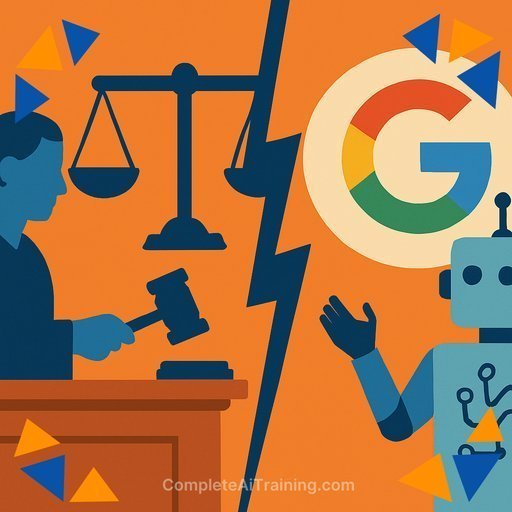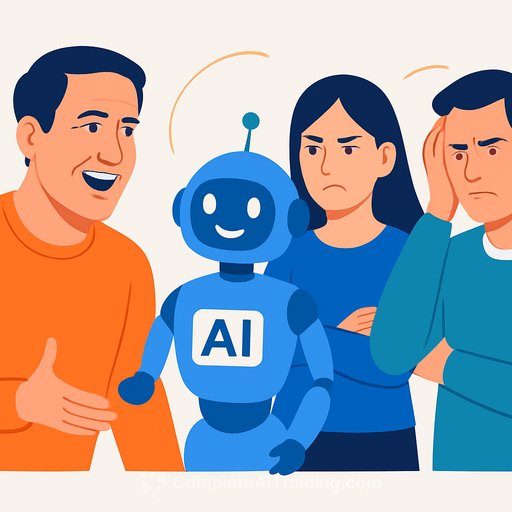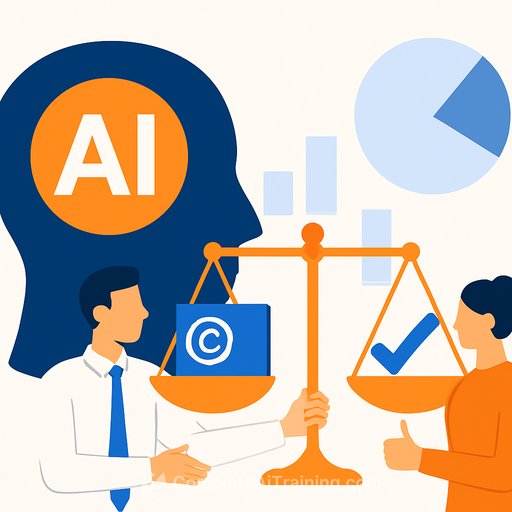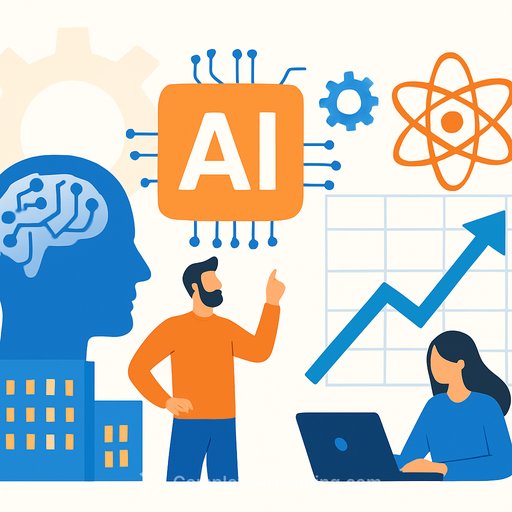Antitrust, Not Copyright: Why Penske's Case Against Google Matters to Creators
June was rough for publishers guarding their work from AI training. A federal judge in San Francisco said Anthropic didn't break the law by training on copyrighted books, and a separate suit against Meta from authors including Sarah Silverman and Ta-Nehisi Coates was tossed for relying on weak arguments.
Penske Media Corporation-parent to Rolling Stone, Deadline, and Billboard-is trying a different path. Instead of arguing over copyright, it's claiming Google's AI Overviews unfairly siphon attention, reducing clicks to the original sources creators rely on.
The legal pivot: from copyright to competition
Copyright is a tough win here. Google's AI Overviews don't necessarily copy text word-for-word, which weakens a typical infringement claim. Penske is leaning on antitrust instead, arguing Google's tactics tilt the playing field.
Two anchors support that theory. First, similar claims have been filed (Chegg's case raises related issues). Second, a federal court in DC recently found Google maintained an illegal monopoly in search-making antitrust arguments more plausible in this context.
One key idea in the suit is "reciprocal dealing": Google effectively forces publishers to let AI train on and summarize their content to remain visible in search. That's an old antitrust concept applied to a modern platform dynamic.
What AI Overviews do to your traffic
AI chat summaries reduce the need to click. A Pew study cited in Penske's filing found users are about half as likely to visit links when an AI summary appears. Another study from Columbia Business School, MIT, and Dartmouth found Wikipedia traffic dropped after ChatGPT launched-especially on pages that overlap with chatbot-style coverage.
Google's response: Search still sends billions of clicks and AI Overviews make search more useful, creating "new opportunities" for discovery. Expect that line to define the defense.
Why creatives should care
If AI Overviews satisfy intent inside the results page, fewer readers reach your work. That erodes ad revenue, weakens audience data, and reduces leverage with partners.
As one litigator put it, current IP law isn't built for this. Without stronger protections or new norms, creators risk an "information monoculture" where a small number of AI platforms mediate what gets seen-and keep more of the value.
Practical moves to protect your work and income
- Own the relationship: Push readers to email, SMS, private communities, or memberships. Algorithms are rented land.
- Publish "uncopiable" work: Original data, interviews, proprietary frameworks, local access, and interactive tools are harder to summarize into a one-liner.
- Shift your SEO mix: Target queries with clear purchase intent, local nuance, or complex comparisons. Create depth that an AI card can't replace.
- Package for action: Templates, calculators, checklists, and swipe files give users a reason to click through.
- Instrument everything: Track CTR changes on pages likely to trigger AI summaries. Watch branded vs. non-branded search, and segment by query type.
- Monetize off-platform: Digital products, courses, workshops, affiliate bundles, and premium newsletters reduce dependence on ad revenue.
- Control access (with intent): Review robots.txt, rate limiting, and paywalls. Balance discoverability with protection; test partial feeds for high-value content.
- Use structured data: Schema markup, clear bylines, and sources increase credibility signals and can improve how your work is referenced.
- Legal readiness: Document traffic shifts aligned with AI Overviews. Coordinate with industry groups. Explore antitrust and unfair competition options with counsel.
What to watch next
If Penske's approach sticks, remedies could include stricter source attribution, mandatory outbound links, explicit opt-outs that don't nuke rankings, or revenue-sharing frameworks. Even a partial win could set precedent for future cases.
Either way, assume AI summaries are now part of search. Build for direct distribution, produce work that resists compression, and keep your revenue streams diversified.
Skill up fast (for creatives)
- Courses by job: build AI-proof skills and workflows
- AI tools for copywriting: test, compare, and deploy responsibly
Your membership also unlocks:






